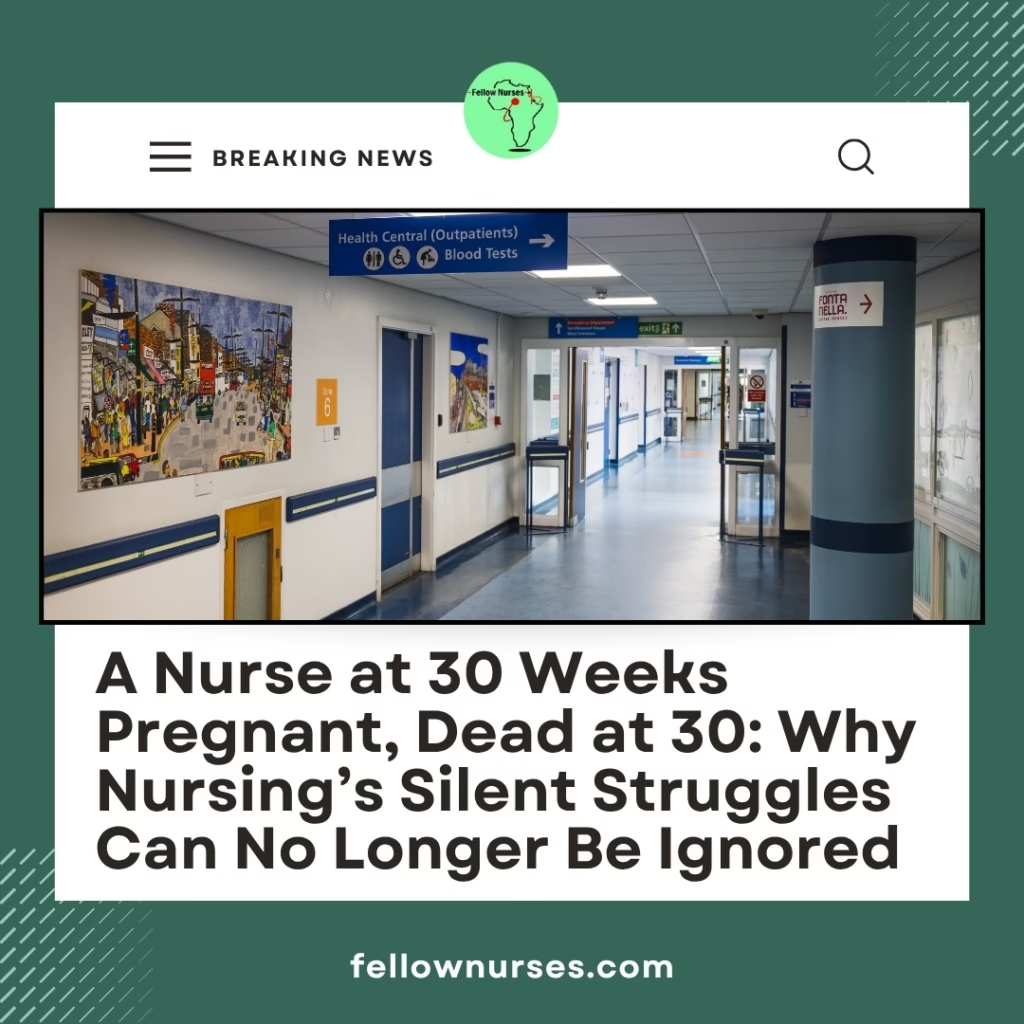Fellow Nurses Africa | Lagos, Nigeria | 03 October 2025

Louisiana Nurse’s Death Highlights Rising Crisis in Healthcare Workforce
The death of a nurse outside Ochsner Lafayette General Medical Center this week is reverberating far beyond Louisiana, reigniting urgent questions about the hidden toll of nursing work and the support systems designed to protect caregivers.
According to local reports from KPEL and News15/KADN, police confirmed that a nurse was found unresponsive in the hospital parking lot from an apparent drug overdose. She was just 30 years old. Some outlets have reported she was also pregnant at the time, though that detail has not yet been formally confirmed by hospital officials or investigators.
The hospital has so far declined to issue a detailed statement, citing confidentiality.
While the circumstances of this particular case remain under investigation, research paints a troubling backdrop. A 2023 study from Columbia University found that registered nurses face a 51% higher risk of dying from drug overdose compared to non–healthcare workers. Long hours, relentless stress, and proximity to controlled substances combine to make nurses especially vulnerable.
In Dallas, two nurses died of overdoses inside a hospital in 2018, raising alarms about “drug diversion,” the misuse of hospital medications by staff under pressure.
Nurses across social media platforms reacted with grief and frustration. Many pointed to a culture that demands emotional resilience without offering real safeguards.
“They put us in the highest stress situations with no breaks doing things that would make other people cry, but we’re expected to handle it better than a war veteran,” wrote one nurse in response to the news.
Others highlighted the stigma that prevents healthcare workers from seeking help. Unlike many professions, nurses risk disciplinary action or even job loss if they admit to mental health struggles or substance misuse.
This tragedy is not an isolated event, it is a symptom of a workforce stretched to breaking point. With global surveys showing more than 40% of nurses experiencing anxiety, depression, or burnout, advocates argue that systemic reforms are overdue:
-
Mental health access without fear of punishment
-
Realistic staffing ratios and protected breaks
-
Transparent investigations when overdose deaths occur in hospital settings
As the Lafayette community mourns, the larger question remains, how many more losses will it take before healthcare systems prioritize the wellbeing of the very people tasked with saving others?
Fellow Nurses Africa is the independent voice of African Nurses. We educate, inform and support the nursing profession










